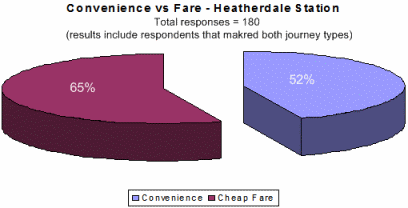The Maroondah Leader has reported on the need for the full redevelopment of Ringwood Station to be included within the upcoming 2009-2010 Budget.
Cr Alex Makin said the station upgrade would be a “catalyst for the transformation of Ringwood. We need the State Government to back up the commitment it made late last year.”
While the State Government committed $39 million for the redevelopment of the Ringwood station forecourt and bus interchange, this funding will not alter the station itself or improve accessibility for train users.
“It will stimulate local economic activity, create jobs within the region and encourage inclusion since the project would create a station that is accessible.”
The redevelopment of Ringwood Station would stimulate economic activity not just to Maroondah but throughout the outer eastern suburbs.
Furthermore, a commitment towards the station would demonstrate that the State Government has confidence in its policies for Ringwood and would therefore encourage further development to transform Ringwood into a vibrant ubran centre.
“Now is the ideal time for the Government to commit to the project in its entirety.”
A commitment towards infrastructure projects such as creating an accessible, inclusive and easy to use Ringwood Station and interchange would demonstrate a commitment to Maroondah and the regional economy.
The State Budget is due in early May.
